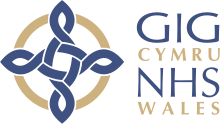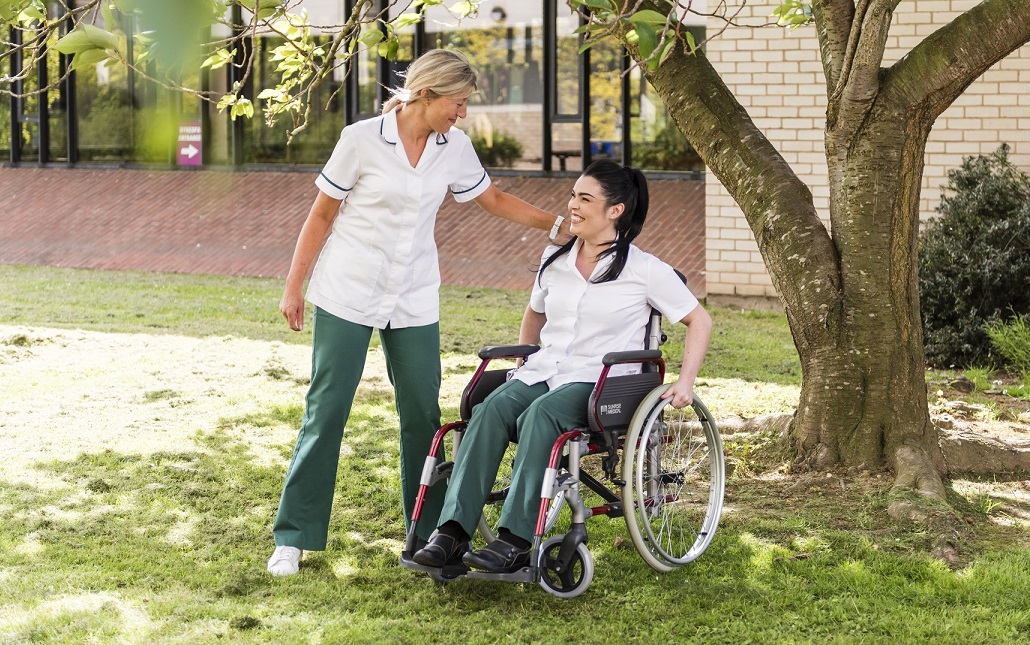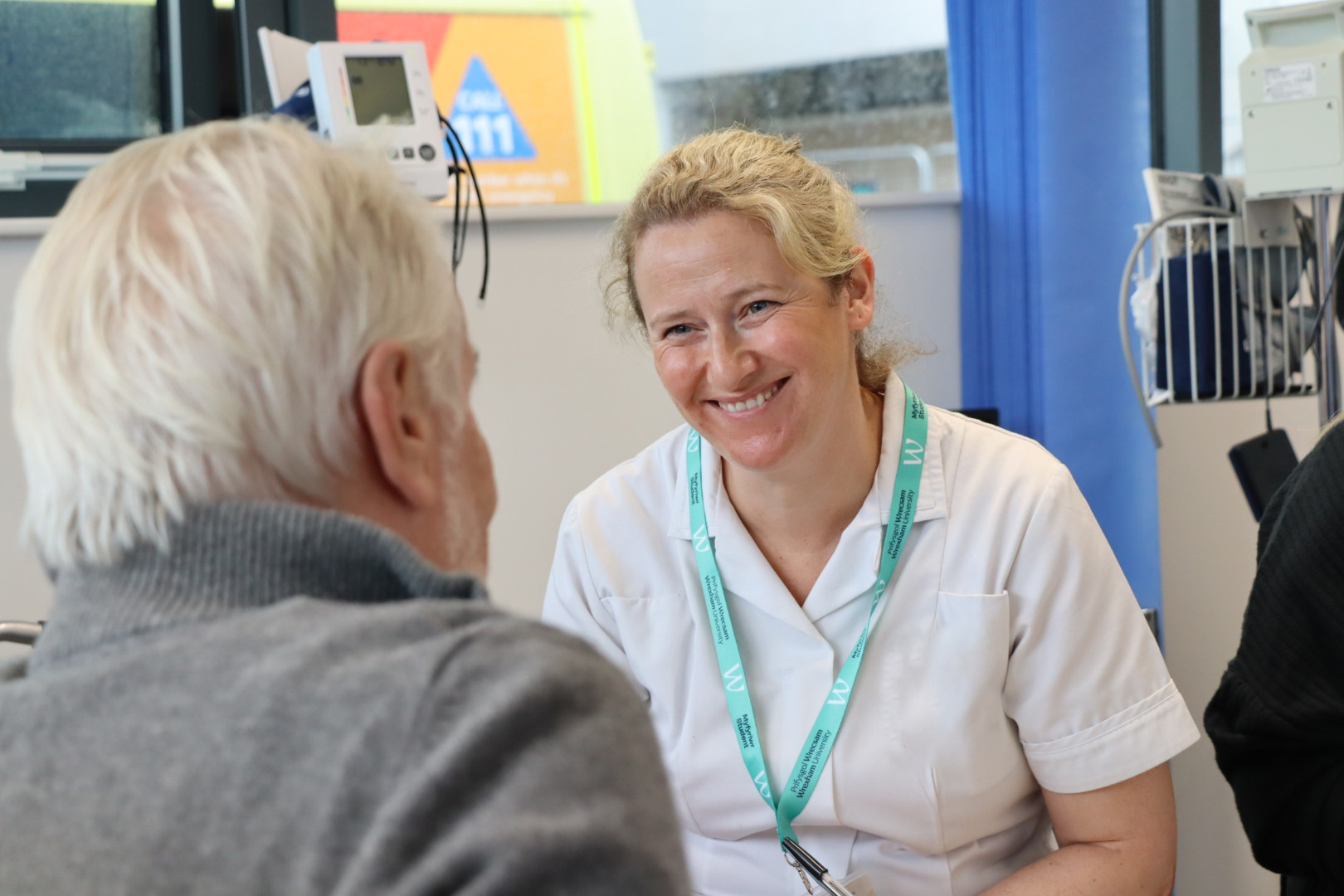
Course details
UCAS Code
SL22
Year of entry
2026
Duration
3 YRS (FT)
UCAS Tariff
120
Institution Code
G53
Location
Wrexham
Course Highlights
Learn
from a lecturing team offering expertise from a range of clinical backgrounds
Eligibility
for HCPC and RCSLT registration upon graduation
Joint 1st
in the UK for Graduate Prospects*
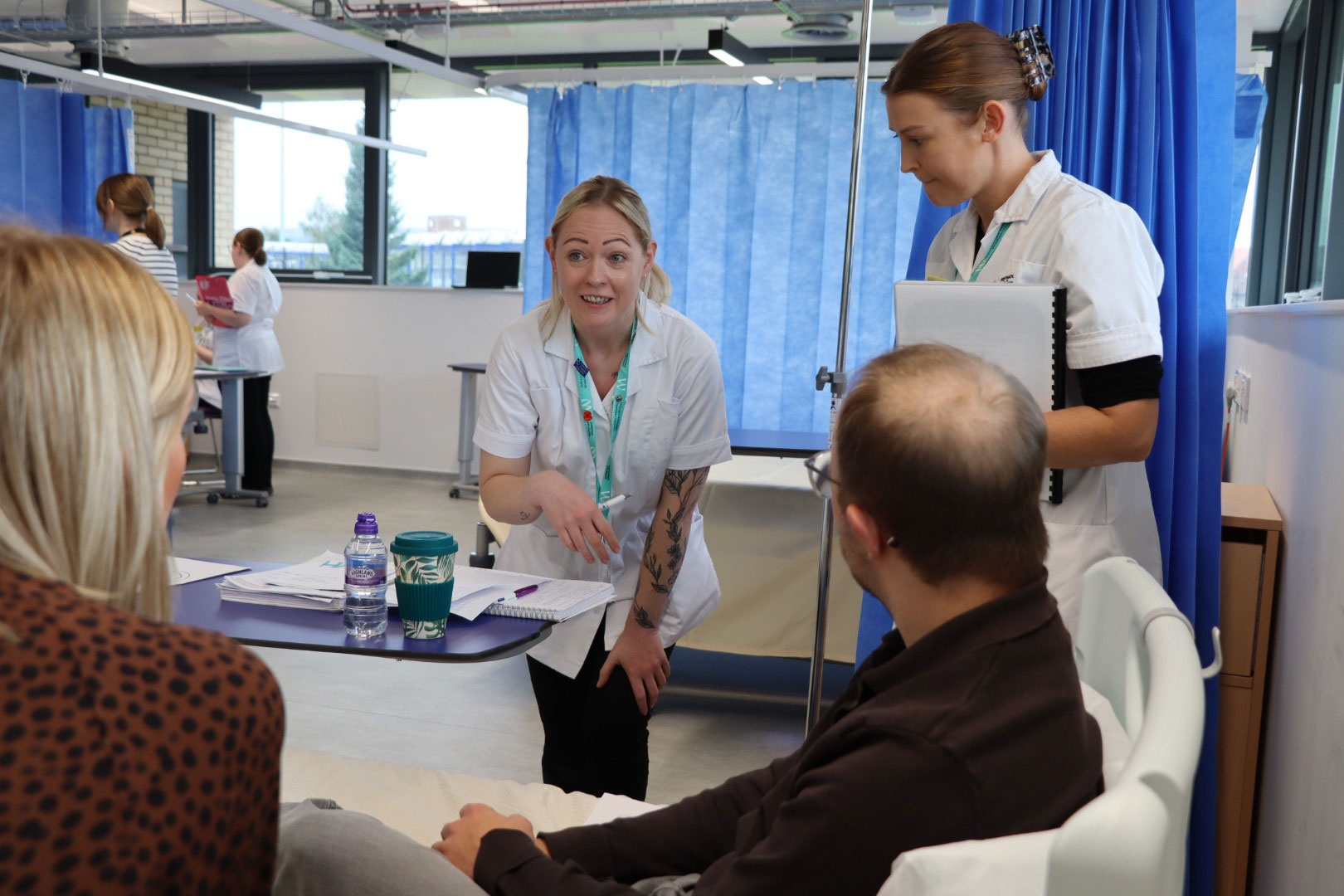
Equip yourself for the future
Set yourself up for a fulfilling career. Make use of state-of-the-art healthcare equipment that transforms learning into a dynamic and immersive experience.
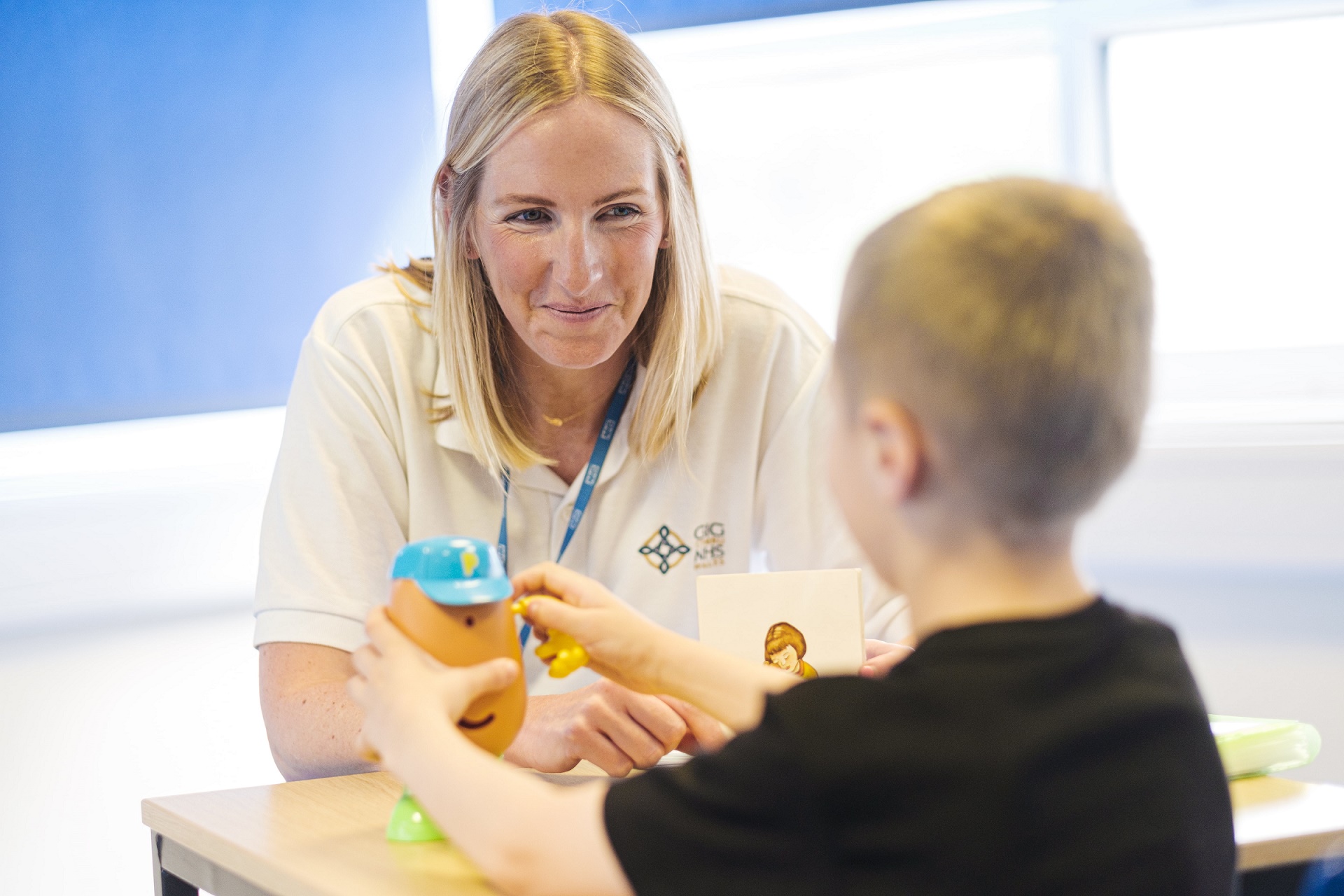
Speech and Language Therapy atWrexham University
Thinking of a career in Speech and Language Therapy? Hear from lecturers and students about our course at Wrexham University.
Why choose this course?
Teaching a balanced mix across the lifespan of paediatric and adults, this course equips you with the clinical and professional competencies making you eligible for registration as a Speech and Language Therapist.
You will:
- Be eligible for The Health and Care Professions Council (HCPC) and The Royal College Of Speech & Language Therapists (RCSLT) registration upon graduation
- Access modern simulation facilities including Virtual Reality
- Have the opportunity to participate in placements across North Wales in a variety of clinical settings
- Benefit from strong links with the local health board
- Learn from a lecturing team offering expertise from a range of clinical backgrounds.
*This course is part of a subject area ranked Joint 1st in the UK for Graduate Prospects in the Subjects Allied to Medicine subject area league table in the Times and Sunday Times Good University Guide 2026.


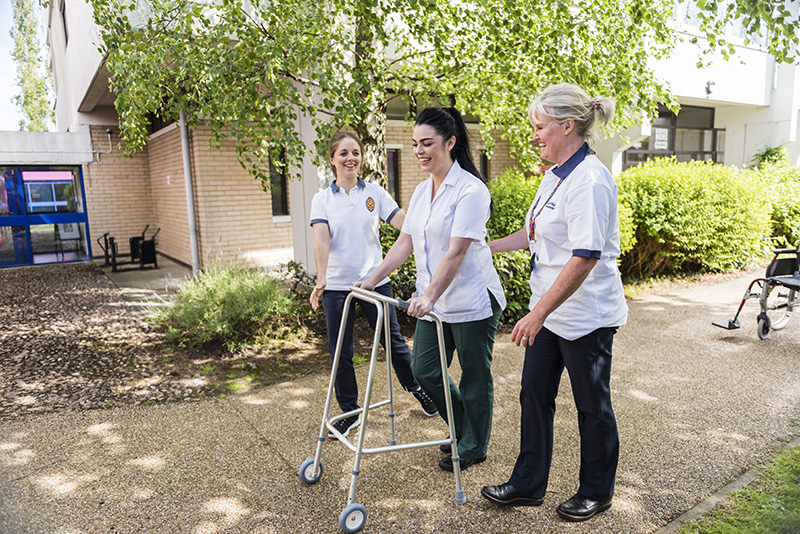
Nursing and Allied Health
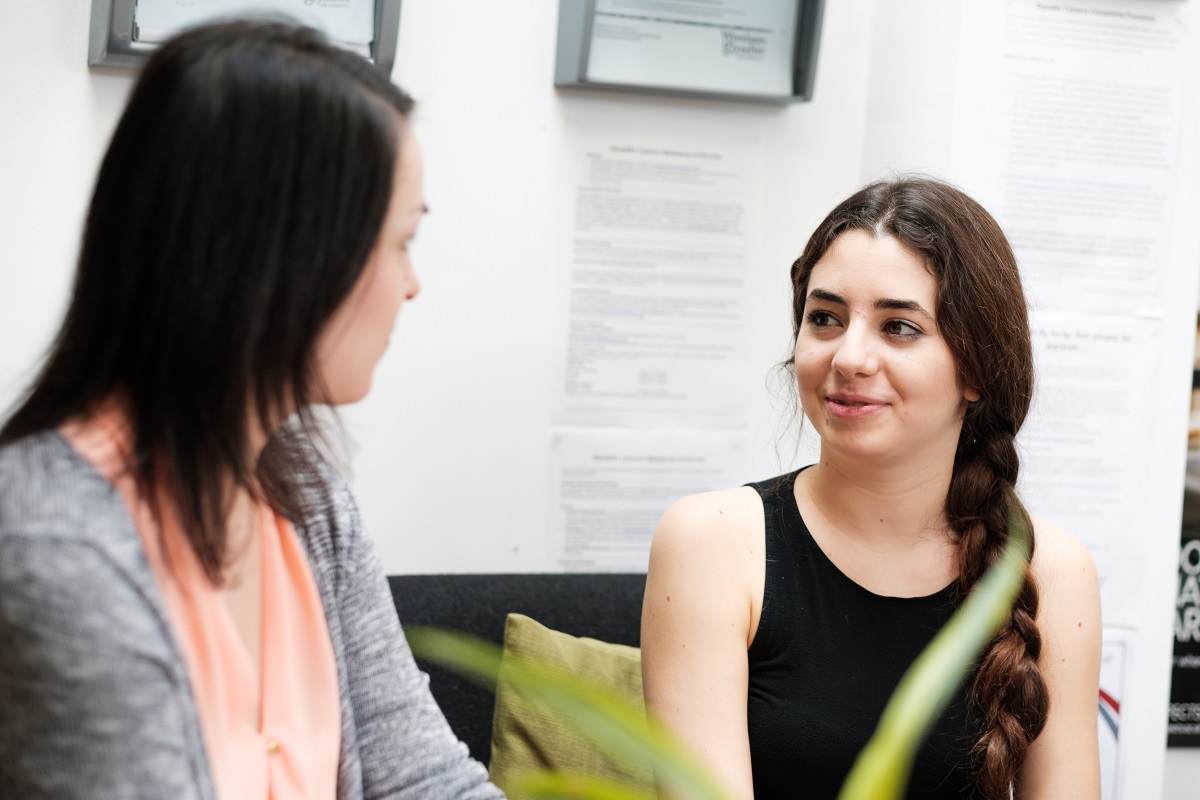
Speech andLanguage Therapy
Programme leader, Lauren Salisbury, to tell you some more about the course, its career prospects and studying here at Wrexham University.
Key course features
- Dynamic and practical approach to teaching
- Strong links with the RCSLT, our professional body
- Teaching consists of modern themes relevant to the evolving profession
- Placement opportunities in a variety of clinical settings to provide you with practical knowledge and skills
- Opportunities to engage in research throughout the course
What you will study
Year 1 (Level 4)
In the first year of study, you are introduced to the concepts of phonetics, linguistics, psychology, biology and human development that will underpin your studies on the rest of this course. You will develop skills in research and professional practice. You will undertake a pre-clinical in semester 1 and a clinical placement in a Speech and Language Therapy team in semester 2.
Modules:
- Foundations in Professional and Evidence Based Practice: This professional practice module supports students to develop values, behaviours, knowledge and skills that are required to meet HCPC standards of proficiency and core RCSLT professional capabilities. There is a core focus on the student honing and adapting their reflective and self-evaluation skills to aid their lifelong career journey as an autonomous and compassionate SaLT.
- Development and Learning Across the Lifespan: This module covers theories of human development, language acquisition, literacy acquisition, bilingualism and biological, psychological and social changes across the lifespan. Students are introduced to underpinning theories with reference to their application to practise.
- Communication and Swallowing Across the Lifespan: students are introduced to specialist areas of speech, language, communication, eating drinking and swallowing. This module covers a range of topics including AAC, paediatric and adult eating drinking and swallowing, fluency, learning disability and neurodiversity.
- Introduction to Phonetics and Linguistics: This module covers the basic concepts of phonetics, phonology and linguistics. Students learn to transcribe typical speech at a detailed level using all the symbols of the International Phonetic Alphabet, and learn how to break down typical language into its components and the theoretical background to these components.
- Essential Psychology: This module provides an underpinning of psychological theory relevant to Speech and Language Therapy practise. Teaching broadly covers biological, cognitive and social psychology, including individual differences, attachment theory, and personality.
Year 2 (Level 5)
In the second year, you will build on the knowledge and skills you have learned in year 1. You will learn more about specialist areas of Speech and Language Therapy, and apply this knowledge to practice through lectures, seminars, simulation and placement.
Modules:
- Speech and Swallowing: Teaching focuses on developmental and acquired motor speech (e.g. apraxia of speech, dysarthria) and swallowing difficulties. Students will appraise evidence, evaluate teamwork, identify intervention goals, and assess impact on health and well-being.
- Applied Life Sciences and Psychology: This module integrates life sciences and psychology to support the development of knowledge and skills relevant to speech and language therapy. It focuses on applying anatomical, physiological, and psychological theories to SLT practice, such as vocal tract anatomy, the nervous system, and psychological theories such as educational and forensic psychology.
- Language and Cognition: Study will focus on acquired cognitive communication and language difficulties and neurological conditions. You will be encouraged to consider how the epidemiology fits with the wider determinants of health and to consider a holistic, strengths-based approach to person-centred intervention.
- Clinical Linguistics and Phonetics: Having learnt the typical aspects of phonetics and linguistics, students use this knowledge to analyse speech and language data from atypical speakers. Students learn about typical development of speech and language as well as frameworks for understanding disordered speech and language. They learn how to assess the speech and language of patients with a variety different clinical presentations.
- Developing Professional and Evidence Based Practice: Students continue to build on the professional skills they learned in level 4 in this module. Students learn about service development, efficacy and auditing and the use of outcome measures in clinical practice. Students continue their research journey, learning about ethics of research and submitting a research proposal.
- Sounds, Hearing and Audiology: This module covers the anatomy, physiology, and theoretical background of all aspects of hearing. Students learn how to work with deaf children and adults, and learn how to interpret audiograms and work with audiologists.
Year 3 (Level 6):
In the final year of study, students consolidate their learning from the previous two years to integrate their understanding of the theories underpinning Speech and Language Therapy and their application to practice. Students will complete 2 clinical placements in their third year, and have the opportunity to present their research projects at a local conference.
Modules:
- The Evolving Profession: This module aims to provide students with a contextual overview of the evolution of the profession, paying particular importance to the local and national policies and procedures and wider cultural shifts and movements influencing the profession. It will aim to encourage and facilitate debates and discussions around contemporary themes and advancements in the profession and more broadly in health, education and social care sectors.
- Speech and Language Therapy Specialisms: This module focuses on communication and swallowing difficulties in specialist settings. The module integrates science, psychology, and communication to examine conditions, their psychosocial impact, and ethical considerations for intervention.
- Advanced Professional Practice: This module broadly covers ethical dimensions related to clinical practice, models and frameworks of holistic person-centred care, social, cultural and linguistic factors and implications for intervention, and reflection in practice. Teaching includes opportunities for mock interviews and preparation for being a newly qualified practitioner.
- Clinical Research Project: In this module, students carry-out a basic clinical research project. The taught sections of this module cover the practical aspects of carrying out the project including: research design, data collection, data analysis, ethics, literature searching, and structuring a research report. As well as whole class teaching, students are allocated a project supervisor who will carry personally tailored tutorials guiding them through the process.
The information listed in this section is an overview of the academic content of the programme that will take the form of either core or option modules. Modules are designated as core or option in accordance with professional body requirements and internal academic framework review, so may be subject to change.
Entry requirements & applying
To be eligible for this course and bursary under the NHS Wales Bursary Scheme Terms and Conditions, you must be a UK National or Irish National or have been granted Indefinite Leave to Remain in the UK or Ireland.
Overseas applicants without settlement status are not eligible for this course.
120 UCAS tariff points at GCE A Level or equivalent in relevant subject areas such as science, the arts and languages.
A minimum of 5 GCSEs (or equivalent), to include English/Welsh language, Maths and Science at grade C or above.
In addition to the academic requirements, all applicants whose first language is not English or Welsh must demonstrate English language proficiency equivalent to Level 8 of the International English Language Testing System, with no element below 7.5
Wrexham University takes into account a variety of qualifications and experience when considering applications to our programmes. If you are unsure if the qualifications you currently hold will be accepted for entry, or if you're not sure you'll achieve the required UCAS Tariff points, please contact us at enquiries@wrexham.ac.uk for further advice and guidance.
Teaching & Assessment
You will be taught through a blended learning approach, utilising in person teaching on our Plas Coch campus, online lectures and seminars, and set asynchronous work to complete in your own time. Lectures take on a dynamic and practical approach, including group work and discussions, debates, creating resources, presentations and case studies.
Assessment takes many forms, including written assignments and exams, case based oral exams, placement-based vivas and portfolios.
Teaching and learning
We offer workshops and support sessions in areas such as academic writing, effective note-making and preparing for assignments.
Students can book appointments with academic skills tutors dedicated to helping deal with the practicalities of university work. Our student support section has more information on the help available.
In terms of particular needs, the University’s Inclusion Services can provide appropriate guidance and support should any students require reasonable adjustments to be made because of a recognised prevailing disability, medical condition, or specific learning difference
This course utilises authentic assessment methods to ensure students can demonstrate the required knowledge and skills to meet HCPC Standards of proficiency upon qualification. For examinations that are assessing a competency required for clinical practice, a reasonable adjustment or alternative method of examination may not be appropriate. This is to replicate the competency and skills that are required for effective clinical practice. If you have any questions about this then please contact the admissions lead or inclusion services to discuss. Information on the required Standards of proficiency upon qualification can be found on the HCPC website: Speech and language therapists | The HCPC
Career prospects
Our dedicated Careers and Employability team is committed to helping you achieve your professional goals. They provide personalised advice, useful resources, and extracurricular employability events to prepare you for the job market.
Graduates of this course can pursue careers in:
- Clinical roles within Speech and Language Therapy
- Public Health Practitioner
- Roles within the RCSLT, our professional body
- Heath Education Improvement Wales
- Lecturing/teaching
- Research roles
- Local and national government, influencing policy
- Registered Intermediary
- Management roles in health boards
- Voice coaching
- Roles within third sector e.g. charities
*all roles may be subject to additional training
Additionally, you may choose to further your expertise through postgraduate studies. Explore our postgraduate courses for more information.
Fees & funding
This is a Welsh Government Bursary-commissioned programme.
A full NHS bursary, including tuition fees and a non-repayable bursary for living costs, is available for this programme providing you agree to work in Wales for two years after registration (subject to change).
Learn more the NHS bursary.
Accommodation
At Wrexham University, we offer on-campus en-suite rooms within our Wrexham Student Village. These private, fully furnished spaces are conveniently located, providing easy access to campus facilities, study areas, and social spaces. Plus, you’re just a 10-minute walk from the city centre!
With all bills included, free Wi-Fi, 24/7 security, and large social areas, you’ll find everything you need for a great student experience.
Explore our student accommodation options to find your perfect home away from home.
Upcoming Open Days.
Join us at an upcoming open day to meet your lecturers, find out more about our courses, discover our facilities and get a taste of student life.
Browse all of our open days & events.
